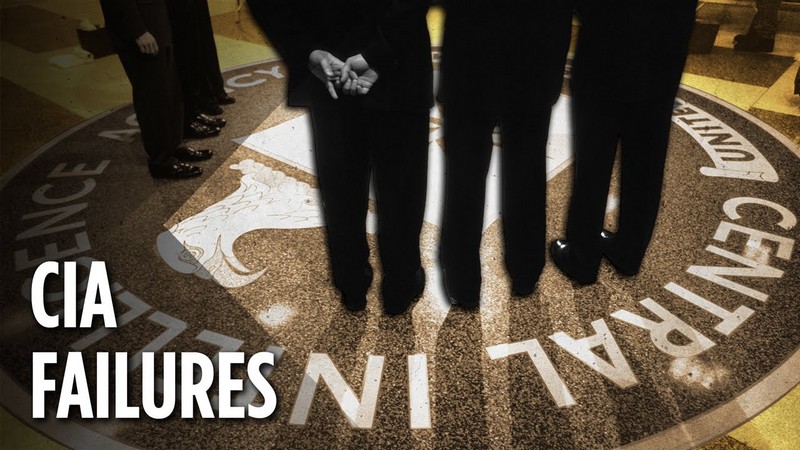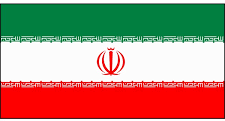It looks like you're using an Ad Blocker.
Please white-list or disable AboveTopSecret.com in your ad-blocking tool.
Thank you.
Some features of ATS will be disabled while you continue to use an ad-blocker.
share:

I'm a big believer of context.
Maybe it's time to rethink many of the issues discussed on these boards, especially with respect to certain events that took place between 2009-2013.
Zach Dorfman and Jenna McLaughlin published an article yesterday in Yahoo News that will likely blow everyone's mind. I'd encourage you to fully read it, because what it reveals is nothing short of amazing. It recounts a massive breach of certain CIA communications, the ramifications of which we are still feeling today.
The CIA's communications suffered a catastrophic compromise. It started in Iran.
In 2013, hundreds of CIA officers — many working nonstop for weeks — scrambled to contain a disaster of global proportions: a compromise of the agency’s internet-based covert communications system used to interact with its informants in dark corners around the world. Teams of CIA experts worked feverishly to take down and reconfigure the websites secretly used for these communications; others managed operations to quickly spirit assets to safety and oversaw other forms of triage.
“When this was going on, it was all that mattered,” said one former intelligence community official. The situation was “catastrophic,” said another former senior intelligence official.
From around 2009 to 2013, the U.S. intelligence community experienced crippling intelligence failures related to the secret internet-based communications system, a key means for remote messaging between CIA officers and their sources on the ground worldwide. The previously unreported global problem originated in Iran and spiderwebbed to other countries, and was left unrepaired — despite warnings about what was happening — until more than two dozen sources died in China in 2011 and 2012 as a result, according to 11 former intelligence and national security officials.
The article continues:
The disaster ensnared every corner of the national security bureaucracy — from multiple intelligence agencies, congressional intelligence committees and independent contractors to internal government watchdogs — forcing a slow-moving, complex government machine to grapple with the deadly dangers of emerging technologies.
...
“When these types of compromises happen, it’s so dark and bad,” said one former official. “They can burrow in. It never really ends.”
...
Multiple former intelligence officials said that the damage from the potential global compromise was serious — even catastrophic — and will persist for years.
...
“We’re still dealing with the fallout,” said one former national security official. “Dozens of people around the world were killed because of this.”
So what happened?
Well it turns out the CIA used an internet-based covert communications system for all of its foreign assets. In fact, this system was nothing more than a series of simple websites any particular asset could use to communicate with his or her CIA handlers.
...the communications system the CIA was using to communicate with agents was flawed.
...
“It was never meant to be used long term for people to talk to sources,” said one former official.
“Everyone was using it far beyond its intention,” said another former official.
The risks posed by the system appeared to have been overlooked in part because it was easy to use, said the former intelligence officials. There is no foolproof way to communicate — especially with expediency and urgency — with sources in hostile environments like Iran and China, noted the former officials. But a sense of confidence in the system kept it in operation far longer than was safe or advisable, said former officials. The CIA’s directorate of science and technology, which is responsible for the secure communications system, “says, ‘our s***’s impregnable,’ but it’s obviously not,” said one former official.
One official pointed out the system 'was not built to withstand the sophisticated counterintelligence efforts of a state actor like China or Iran.'


The Iranians cracked the code.
In 2009, Iran initiated a massive mole hunt, after the Obama administration announced its knowledge of Iran's secret underground enrichment facility.
The above article further describes:
By 2010, however, it appears that Iran had begun to identify CIA agents. And by 2011, Iranian authorities dismantled a CIA spy network in that country, said seven former U.S. intelligence officials. (Indeed, in May 2011, Iranian intelligence officials announced publicly that they had broken up a ring of 30 CIA spies; U.S. officials later confirmed the breach to ABC News, which also reported on a potential compromise to the communications system.)
Iran executed some of the CIA informants and imprisoned others in an intelligence setback that one of the former officials described as “incredibly damaging.” The CIA successfully exfiltrated some of its Iranian sources, said former officials.
...
U.S. authorities believe Iran probably unwound the CIA’s asset network analytically — meaning they deduced what Washington knew about Tehran’s own operations, then identified Iranians who held that information, and eventually zeroed in on possible sources. This hunt for CIA sources eventually bore fruit — including the identification of the covert communications system.
In 2011, Iran announced that it had destroyed the CIA's network of fake company websites used for recruitment and communications. It's believed the Iranians used a double agent to initially identify the secret CIA communications system.
The article explains:
...the Iranians [then] used Google to identify the website the CIA was using to communicate with agents.
According to the former intelligence official, once the Iranian double agent showed Iranian intelligence the website used to communicate with his or her CIA handlers, they began to scour the internet for websites with similar digital signifiers or components — eventually hitting on the right string of advanced search terms to locate other secret CIA websites. From there, Iranian intelligence tracked who was visiting these sites, and from where, and began to unravel the wider CIA network.
Pretty amazing...and stupid of the CIA to not understand the risk. Don't you think?
I think most people think finding something like this would take a sophisticated effort. But apparently not.
All it took was a Google search.
edit on 3-11-2018 by loam because: (no reason given)

CHINA
Not surprisingly after Iran's 2011 announcement, China jumped onboard and did some unraveling of its own:
But the events in Iran were not self-contained; they coincided roughly with a similar debacle in China in 2011 and 2012, where authorities rounded up and executed around 30 agents working for the U.S. (the New York Times first reported the extirpation of the CIA’s China sources in May 2017). Some U.S. intelligence officials also believe that former Beijing-based CIA officer Jerry Lee, who was charged with spying on behalf of the Chinese government in May 2018, was partially responsible for the destruction of the CIA’s China-based source network. But Lee’s betrayal does not explain the extent of the damage, or the rapidity with which Chinese intelligence was able to identify and destroy the network, said former officials.
U.S. officials believe that Chinese intelligence obtained physical access to the transitional, or temporary, secret communications system used by the CIA to correspond with new, unvetted sources — and broke through the firewall separating it from the main covert communications system, compromising the CIA’s entire asset network in that country.
There's speculation that China then later shared what it learned with the Russians.
You see how this cascades?
“Our adversaries dramatically upped their game” in their offensive hacking operations, including those geared toward cracking the U.S. covert communications platforms, during this period, said another former senior intelligence official. This almost certainly included information sharing between these countries on U.S. covert communications techniques, said multiple former officials — the makings of a real-life “axis of evil.”
With dawning horror, U.S. officials realized that once Iranian or Chinese intelligence officials were able to pinpoint CIA assets within their own borders, they were almost certainly capable of zeroing in on similar digital signatures in other countries...
...
These multiple, overlapping failures of the communication system created systemic problems for the agency. “There was a cascade of effects that flowed outward” from the initial breaches, said another former intelligence official. “Part of the problem was trying to figure out the second and third order of effects.”
Repairing this breach had to be approached with extraordinary delicacy because attempted fixes can expose sources. Iran or China could then target and flip those CIA sources, or use information about them as bargaining chips with other intelligence services, former officials said. Around this time, Iranian intelligence officials also began aggressively pitching CIA officers to become double agents —meaning that they had somehow identified agency personnel, potentially through this wider compromise, said one former intel official.
So this was no small potatoes. CIA agents were even tracked outside their own borders.

RUSSIA
One silver lining appears to be that the damage was contained in Russia. The article explains:
CIA officials who focus on Russia knew about the China ordeal and quickly adjusted their communications with sources accordingly...
Aspects of the CIA’s Russia operations have historically been walled off from the rest of the agency, which likely helped minimize the damage. But the issue was so acute in the Middle East that the CIA was forced to suspend its use of internet-based covert communications systems there several times.

WHISTLE-BLOWER
As the article later covers, the real kicker of all of this was that in 2008 the CIA had been warned about these vulnerabilities. "A defense contractor named John Reidy, whose job it was to identify, contact and manage human sources for the CIA in Iran, had already sounded an alarm about a 'massive intelligence failure' having to do with 'communications' with sources."
He was summarily ignored, until 2010, when he decided to become a whistle-blower. But even then, and despite having gone to the CIA inspector general and congressional investigators, the problem remained unaddressed because of technicalities related to Reidy's whistle-blower status.
Meanwhile, throughout 2010 and 2011, the compromise continued to spread, and Reidy provided details to investigators. But by November 2011, Reidy was fired because of what his superiors said were conflicts of interest, as Reidy maintained his own side business. Reidy believed the real reason was retaliation.
Pretty shocking, if you ask me.
But maybe it shouldn't be, if you think about it:
“The Obama administration has presided over the most draconian crackdown on national security and intelligence community whistleblowers in US history”
In 2014, the intelligence IG ordered the CIA to investigate Reidy's claims of retaliation, where he exposed in great detail again the CIA's exposed system.
But guess what? He was labeled a "troublemaker".
“Can you imagine how different this whole story would’ve turned out if the CIA [inspector general] had acted on Reidy’s warnings instead of going after him?” said Kel McClanahan, Reidy’s attorney. “Can you imagine how different this whole story would’ve turned out if the congressional oversight committees had done oversight instead of taking CIA’s word that he was just a troublemaker?”
Irvin McCullough, a national security analyst with the Government Accountability Project, a nonprofit that works with whistleblowers, put the issue in even starker terms. “This is one of the most catastrophic intelligence failures since Sept. 11,” he said. “And the CIA punished the person who brought the problem to light.”
Are you feeling sick yet?
edit on 3-11-2018 by loam because: (no reason given)
2009-2013...and beyond
As I mentioned at the very beginning of this thread, context is everything.
That got me to thinking about a whole host of issues and actions during the Obama administration that I suddenly see very differently now.
Remember, by 2013, "when this was going on, it was all that mattered.”
The Iran Deal
I never fully understood the ping-pong policy Obama had with respect to Iran. Prior to his election, the US had no direct talks with Iran going all the way back to 1979. Moreover, the US and UN imposed a series of sanctions over the years, including on March 3, 2008, right before Obama's election.
During the presidential campaign, Obama repeatedly took the position (departing from prior administrations) that "he would seek engagement with Iran without preconditions," something the right excoriated Obama for saying.
Once elected, Obama moved forward:
Then just shy of six months later, on September 25, 2009, Obama (along with Britain and France) condemned Iran over discovery of their secret nuclear plant. (Link.)
Over the next three years, things get crazy. More sanctions. The Stuxnet virus attack. More centrifuges. More sanctions. Lots of saber rattling. In short, it started to look like we were going to war. Timeline of Nuclear Diplomacy With Iran
Then on September 26, 2013, something interesting happened.
In April of that year, all previous talks had fallen apart. But now there's this sudden change, and it's reported that on the next day, September 27, 2013:
By this time, the CIA network had been completely compromised. We certainly knew by then how it was compromised, as well as what was much of the extent of the damage. Remember, this affected not just the CIA, but nearly every US intelligence agency with foreign assets.
Less than 60 days after Obama's call to Rouhani, and well into the IC's damage control of the 'catastrophe', we suddenly get the first part of the historic agreement with Iran.
Over roughly the next 15 months, Obama pushes forward on the final agreement, having agreed to the release approximately $150 billion in frozen assets, payment of $1.7 billion in cash, and release of many Iranian prisoners in the US and elsewhere.
Obama’s hidden Iran deal giveaway
That article continues to explain that these prisoners were the worst of the worst.
Moreover, that article includes this interesting tidbit:
As I mentioned at the very beginning of this thread, context is everything.
That got me to thinking about a whole host of issues and actions during the Obama administration that I suddenly see very differently now.
Remember, by 2013, "when this was going on, it was all that mattered.”
The Iran Deal
I never fully understood the ping-pong policy Obama had with respect to Iran. Prior to his election, the US had no direct talks with Iran going all the way back to 1979. Moreover, the US and UN imposed a series of sanctions over the years, including on March 3, 2008, right before Obama's election.
During the presidential campaign, Obama repeatedly took the position (departing from prior administrations) that "he would seek engagement with Iran without preconditions," something the right excoriated Obama for saying.
Once elected, Obama moved forward:
April 8, 2009:
Following an Iran policy review by the new Obama administration, the United States announces that it would participate fully in the P5+1 talks with Iran, a departure from the previous administration’s policy requiring Iran to meet UN demands first.
(Link.)
Then just shy of six months later, on September 25, 2009, Obama (along with Britain and France) condemned Iran over discovery of their secret nuclear plant. (Link.)
Over the next three years, things get crazy. More sanctions. The Stuxnet virus attack. More centrifuges. More sanctions. Lots of saber rattling. In short, it started to look like we were going to war. Timeline of Nuclear Diplomacy With Iran
Then on September 26, 2013, something interesting happened.
The P5+1 foreign ministers meet with Iranian Foreign Minister Javad Zarif on the sidelines on the UN General Assembly meeting in New York. Zarif presents the P5+1 with a new proposal that U.S. Secretary of State John Kerry describes as “very different in the vision” of possibilities for the future. Zarif and Kerry meeting for a bilateral exchange after the larger group meeting. Zarif later says he and Kerry move to agree “first, on the parameters of the end game.” Zarif says Iran and the P5+1 will think about the order of steps that need to be implemented to “address the immediate concerns of [the] two sides” and move toward finalizing a deal within a year. The parties agree to meet again on October 15 in Geneva.
In April of that year, all previous talks had fallen apart. But now there's this sudden change, and it's reported that on the next day, September 27, 2013:
President Barack Obama calls Iranian President Hassan Rouhani, marking the highest level contact between the U.S. and Iran since 1979. While President Obama says that there will be significant obstacles to overcome, he believes a comprehensive resolution can be reached.
By this time, the CIA network had been completely compromised. We certainly knew by then how it was compromised, as well as what was much of the extent of the damage. Remember, this affected not just the CIA, but nearly every US intelligence agency with foreign assets.
Less than 60 days after Obama's call to Rouhani, and well into the IC's damage control of the 'catastrophe', we suddenly get the first part of the historic agreement with Iran.
November 20-24, 2013:
Iran and the P5+1 meet again in Geneva to continue negotiations. On November 23, the foreign ministers from the P5+1 join the negotiations. Early on November 24, Iranian Minister Javad Zarif and Catherine Ashton, leader of the P5+1 negotiating team, sign an agreement called the Joint Plan of Action. It lays out specific steps for each side in a six-month, first-phase agreement, and the broad framework to guide negotiations for a comprehensive solution.
The first-phase pauses further developments in Iran's nuclear program, rolls back significant elements like the stockpile of 20 percent enriched uranium, and requires more extensive IAEA monitoring and access to nuclear sites. In return, Iran receives limited sanctions relief, repatriation of limited assets frozen abroad, and a commitment that no new nuclear-related sanctions will be imposed on Iran for the duration of the agreement. For more details on the agreement, click here.
The plan will establish a Joint Commission to monitor the agreement and work with the IAEA. The six month period can be extended by mutual consent of both parties.
Over roughly the next 15 months, Obama pushes forward on the final agreement, having agreed to the release approximately $150 billion in frozen assets, payment of $1.7 billion in cash, and release of many Iranian prisoners in the US and elsewhere.
Obama’s hidden Iran deal giveaway
When President Barack Obama announced the “one-time gesture” of releasing Iranian-born prisoners who “were not charged with terrorism or any violent offenses” last year, his administration presented the move as a modest trade-off for the greater good of the Iran nuclear agreement and Tehran’s pledge to free five Americans.
“Iran had a significantly higher number of individuals, of course, at the beginning of this negotiation that they would have liked to have seen released,” one senior Obama administration official told reporters in a background briefing arranged by the White House, adding that “we were able to winnow that down to these seven individuals, six of whom are Iranian-Americans.”
But Obama, the senior official and other administration representatives weren’t telling the whole story on Jan. 17, 2016, in their highly choreographed rollout of the prisoner swap and simultaneous implementation of the six-party nuclear deal, according to a POLITICO investigation.
That article continues to explain that these prisoners were the worst of the worst.
Moreover, that article includes this interesting tidbit:
...as far back as the fall of 2014, Obama administration officials began slow-walking some significant investigations and prosecutions of Iranian procurement networks operating in the U.S. These previously undisclosed findings are based on interviews with key participants at all levels of government and an extensive review of court records and other documents.
“Clearly, there was an embargo on any Iranian cases,” according to the former federal supervisor.
edit on 3-11-2018 by loam because: (no reason given)
So I could go on and on, but are you starting to see what I see?
The Iran deal wasn't so much a deal made by the P5+1, as it was a bilateral discussion of terms of defeat. Iran had rendered us blind. Iran had us by the balls in many other theaters. Assets were were still at risk and I believe what Obama did was secretly negotiate terms of our defeat in an effort to salvage what was left that had not been damaged or compromised.
In other words, I think Obama tried to buy his way out of this disaster.
See also:
Secret talks helped forge Iran nuclear deal
Secret Dealings With Iran Led to Nuclear Talks: Years of clandestine exchanges between the two countries helped build a foundation for nuclear negotiations

SYRIA
Once you consider this CIA debacle, going back and looking at other issues becomes a really interesting exercise.
Remember Obama's Syrian Red Line?
That was in December of 2012.
In August of 2013, the Ghouta chemical attack took place in Syria.
As the following article explains, John Kerry, then Secretary of State, announced:
Well, now we may well know why.
But before we get to that, the article further describes:
But what Obama did next surprised everyone:
I consider that last part describing what Clapper said to possibly be fake news. It's inconceivable to me that they weren't also (or only) discussing the collapse of the IC's foreign agent network.
In other words, I suspect the real deal was that because Iran had us by the balls, an attack on Syria was a guaranteed escalation with Iran when we were most vulnerable.
The Iran deal wasn't so much a deal made by the P5+1, as it was a bilateral discussion of terms of defeat. Iran had rendered us blind. Iran had us by the balls in many other theaters. Assets were were still at risk and I believe what Obama did was secretly negotiate terms of our defeat in an effort to salvage what was left that had not been damaged or compromised.
In other words, I think Obama tried to buy his way out of this disaster.
See also:
Secret talks helped forge Iran nuclear deal
Secret Dealings With Iran Led to Nuclear Talks: Years of clandestine exchanges between the two countries helped build a foundation for nuclear negotiations

SYRIA
Once you consider this CIA debacle, going back and looking at other issues becomes a really interesting exercise.
Remember Obama's Syrian Red Line?
That was in December of 2012.
In August of 2013, the Ghouta chemical attack took place in Syria.
As the following article explains, John Kerry, then Secretary of State, announced:
“As previous storms in history have gathered, when unspeakable crimes were within our power to stop them, we have been warned against the temptations of looking the other way,” Kerry said in his speech. “History is full of leaders who have warned against inaction, indifference, and especially against silence when it mattered most.”
Kerry counted President Obama among those leaders. A year earlier, when the administration suspected that the Assad regime was contemplating the use of chemical weapons, Obama had declared: “We have been very clear to the Assad regime … that a red line for us is we start seeing a whole bunch of chemical weapons moving around or being utilized. That would change my calculus. That would change my equation.”
Despite this threat, Obama seemed to many critics to be coldly detached from the suffering of innocent Syrians.
(Link.)
Well, now we may well know why.
But before we get to that, the article further describes:
Kerry, in his remarks on August 30, 2013, suggested that Assad should be punished in part because the “credibility and the future interests of the United States of America and our allies” were at stake. “It is directly related to our credibility and whether countries still believe the United States when it says something. They are watching to see if Syria can get away with it, because then maybe they too can put the world at greater risk.”
Ninety minutes later, at the White House, Obama reinforced Kerry’s message in a public statement: “It’s important for us to recognize that when over 1,000 people are killed, including hundreds of innocent children, through the use of a weapon that 98 or 99 percent of humanity says should not be used even in war, and there is no action, then we’re sending a signal that that international norm doesn’t mean much. And that is a danger to our national security.”
It appeared as though Obama had drawn the conclusion that damage to American credibility in one region of the world would bleed into others, and that U.S. deterrent credibility was indeed at stake in Syria.
...
In White House meetings that crucial week in August, Biden, who ordinarily shared Obama’s worries about American overreach, argued passionately that “big nations don’t bluff.” America’s closest allies in Europe and across the Middle East believed Obama was threatening military action, and his own advisers did as well. At a joint press conference with Obama at the White House the previous May, David Cameron, the British prime minister, had said, “Syria’s history is being written in the blood of her people, and it is happening on our watch.” Cameron’s statement, one of his advisers told me, was meant to encourage Obama toward more-decisive action. “The prime minister was certainly under the impression that the president would enforce the red line,” the adviser told me. The Saudi ambassador in Washington at the time, Adel al-Jubeir, told friends, and his superiors in Riyadh, that the president was finally ready to strike. Obama “figured out how important this is,” Jubeir, who is now the Saudi foreign minister, told one interlocutor. “He will definitely strike.”
But what Obama did next surprised everyone:
But the president had grown queasy.
...in a stunning development, on Thursday, August 29, the British Parliament denied David Cameron its blessing for an attack.
Obama was also unsettled by a surprise visit early in the week from James Clapper, his director of national intelligence, who interrupted the President’s Daily Brief, the threat report Obama receives each morning from Clapper’s analysts, to make clear that the intelligence on Syria’s use of sarin gas, while robust, was not a “slam dunk.”
I consider that last part describing what Clapper said to possibly be fake news. It's inconceivable to me that they weren't also (or only) discussing the collapse of the IC's foreign agent network.
Late on Friday afternoon, Obama determined that he was simply not prepared to authorize a strike. He asked McDonough, his chief of staff, to take a walk with him on the South Lawn of the White House. Obama did not choose McDonough randomly: He is the Obama aide most averse to U.S. military intervention, and someone who, in the words of one of his colleagues, “thinks in terms of traps.” Obama, ordinarily a preternaturally confident man, was looking for validation, and trying to devise ways to explain his change of heart, both to his own aides and to the public. He and McDonough stayed outside for an hour...
When the two men came back to the Oval Office, the president told his national-security aides that he planned to stand down.
In other words, I suspect the real deal was that because Iran had us by the balls, an attack on Syria was a guaranteed escalation with Iran when we were most vulnerable.
edit on 3-11-2018 by loam because: (no reason given)

HILLARY CLINTON EMAIL SERVER
As almost everyone knows, HRC kept a private email server in her home.
The email server was located in the Clintons' home in Chappaqua, New York, from January 2009 until 2013, when it was sent to a data center in New Jersey before being handed over to Platte River Networks, a Denver-based information technology firm that Clinton hired to manage her email system.
Link.
Leaving aside much of the controversy, it was reported that HRC's server was infiltrated by the Chinese during much of that period.
SOURCES: China Hacked Hillary Clinton’s Private Email Server
A Chinese-owned company operating in the Washington, D.C., area hacked Hillary Clinton’s private server throughout her term as secretary of state and obtained nearly all her emails, two sources briefed on the matter told The Daily Caller News Foundation.
The Chinese firm obtained Clinton’s emails in real time as she sent and received communications and documents through her personal server, according to the sources, who said the hacking was conducted as part of an intelligence operation.
The Chinese wrote code that was embedded in the server, which was kept in Clinton’s residence in upstate New York. The code generated an instant “courtesy copy” for nearly all of her emails and forwarded them to the Chinese company, according to the sources.
The Intelligence Community Inspector General (ICIG) found that virtually all of Clinton’s emails were sent to a “foreign entity,” Rep. Louie Gohmert, a Texas Republican, said at a July 12 House Committee on the Judiciary hearing. He did not reveal the entity’s identity, but said it was unrelated to Russia.
In March of 2013, the existence of HRC's server became widely known after the "Guccifer" hack of Sidney Blumenthal's email. (Link.)
But if you think that was what prompted her sudden change on who hosted her sever, you'd be wrong.
According to the FBI investigation, in January of 2013, HRC began to search for a hosting provider "due to user limitations and reliability concerns," among other reasons. (Link.)
What I find fascinating is not only the timing for the sudden change, but ultimately who they selected and by whom.
Pagliano will later tell the FBI who made the final decision to pick Platte River. But this person’s name will be redacted, and only identified as someone working for President Clinton.
FBI CLINTON EMAIL INVESTIGATION
Wonder why the redaction?
In any event, Platte River was given the contract in May and is widely regarded an unusual choice, not only because of its small size, but because they had no prior government contracting experience. (Incidentally, it was a Platte River employee that asked reddit for help to strip HRC's name from archived emails, and later bleach bit her server. But I digress...)
The IT firm hired by Clinton to oversee her private server was reportedly 'a mom and pop shop'
The Denver-based IT company hired by Hillary Clinton in 2013 to oversee her private email server was previously a small "mom and pop shop" that seemed like a "bizarre" choice for the former Secretary of State, an ex-employee told The Daily Mail in a story published Tuesday.
"At the time I worked for them they wouldn't have been equipped to work for Hillary Clinton because I don't think they had the resources, they were based out of a loft, so [it was] not very high security, we didn't even have an alarm," Tera Dadiotis, who worked for the firm from 2007-2010, told the paper.
"We were like your local IT company," Dadiotis, a consumer-relations consultant, added. "Nothing special or fancy, we had a really good reputation but that was on a local level."
So once again in the relevant period we have HRC suddenly deciding her server needed to get out of her house. Can anyone argue she would have not known about the full blown crisis in the intelligence community?
While this is pure speculation on my part, I can't help but wonder if HRC panicked, and the plan was to scapegoat someone else should it ever come to light that her server was compromised.
Picking an inexperienced hosting provider would have made such a plan very doable.
Just sayin'
CONCLUSION
There are many more issues worth exploring in the context of this major event. For example, the case of Shahram Amiri... Certain aspects of Benghazi...or Russia....or China....
2013 was a busy year.
Context is everything.
edit on 3-11-2018 by loam because: (no reason given)
Yes I started to read this on the AOL news feed and yea it did give me a sick feeling in my stomach. People were killed because of this. But it will
get little air time and not enough will realize the short and long range repercussions. Its absolutely insane and shows that the CIA and its
operations are a dangerous joke.
Not to mention the CIA malware that was stolen and sold by their own hackers and have sewn chaos all over the world. And we don't even know the full
damage yet.
JFK had the right idea. Oh yeah since JFK came up, we can put that murderous coup in their ever-growing list.
Exceptionally excellent thread, OP, and very, very important.
JFK had the right idea. Oh yeah since JFK came up, we can put that murderous coup in their ever-growing list.
Exceptionally excellent thread, OP, and very, very important.
a reply to: The GUT
The CIA got too big for their own good, and have very limited oversight.
For all we know they operate off of their own best interest.
Either way they have become a liability for the country as a whole.
Reckless would be a polite label to give them.
The CIA got too big for their own good, and have very limited oversight.
For all we know they operate off of their own best interest.
Either way they have become a liability for the country as a whole.
Reckless would be a polite label to give them.
a reply to: loam
Great OP -- great research, well written, very reasonable and logical.
But I don't believe for a minute this wasn't by design.
At the very least, bad critters exploited a known weakness. I don't believe Team Obama wanted to fix anything. At least not in our best interest.
Great OP -- great research, well written, very reasonable and logical.
But I don't believe for a minute this wasn't by design.
At the very least, bad critters exploited a known weakness. I don't believe Team Obama wanted to fix anything. At least not in our best interest.
originally posted by: Boadicea
a reply to: loam
I don't believe Team Obama wanted to fix anything. At least not in our best interest.
If you call negotiating the terms of our defeat 'fixing things'....ok then.
I'm still completely blown away by all of this.
Shouldn't this be front page news?
edit on 3-11-2018 by loam because: (no reason given)
a reply to: Boadicea
He's far from a good president IMO.
That said, I don't want to put this on him so the guilty aren't held accountable.
I'd be hard pressed to believe the president has much knowledge of the inner workings of the CIA, much less the power to change the systems they use.
At the very least, bad critters exploited a known weakness. I don't believe Team Obama wanted to fix anything. At least not in our best interest.
He's far from a good president IMO.
That said, I don't want to put this on him so the guilty aren't held accountable.
I'd be hard pressed to believe the president has much knowledge of the inner workings of the CIA, much less the power to change the systems they use.
originally posted by: Agit8dChop
What a brilliant write up! I'm off to research thanks!
Exactly. So many issues to chase with this as the backdrop.
I hope you post what you find. Would love to see it.
The gist I got from reading the article earlier today was it wasn't sanctioned for this kind of covert agent use, but they used it anyway. Ergo, they
went Full Retard and screwed themselves.
There certainly should have been some degree of "NO, dumb ass, don't use that" from the government & an alternative method available (which I'm sure there was in some form) but you can't exactly fix stupid. If someone wants to use something like a wide-open google-able forum to pass info back and forth with, they're going to do it, no matter how much their agency or higher protests about it.
There certainly should have been some degree of "NO, dumb ass, don't use that" from the government & an alternative method available (which I'm sure there was in some form) but you can't exactly fix stupid. If someone wants to use something like a wide-open google-able forum to pass info back and forth with, they're going to do it, no matter how much their agency or higher protests about it.
edit on 11/3/2018 by Nyiah because: (no reason
given)
MSM silent because Brennan and Clapper are big stars on MSNBC and CNN.
😎
😎
a reply to: loam
Yup. That's pretty much what I mean. He accomplished what he wanted to accomplish.
Of course it should. I feel like is preparing for something more... Getting ahead of the bigger story.
To protect Team Obama when it comes out how poor poor Obama did his best with the absolute mess he inherited from Bush.
If you call negotiating the terms of our defeat 'fixing things'....ok then.
Yup. That's pretty much what I mean. He accomplished what he wanted to accomplish.
I'm still completely blown away by all of this.
Shouldn't this be front page news?
Of course it should. I feel like is preparing for something more... Getting ahead of the bigger story.
To protect Team Obama when it comes out how poor poor Obama did his best with the absolute mess he inherited from Bush.
a reply to: loam
That's pretty bad. Makes working for US intelligence seem almost like suicide.
So, there might be US intelligence assets and personnel that are still imprisoned somewhere.
Good God. Several dozen at once is a mind-boggling amount, though that number probably grew exponentially. Who knows how bad it really was at its worst.
I wonder how many people we lost and how.
That's pretty bad. Makes working for US intelligence seem almost like suicide.
So, there might be US intelligence assets and personnel that are still imprisoned somewhere.
Good God. Several dozen at once is a mind-boggling amount, though that number probably grew exponentially. Who knows how bad it really was at its worst.
I wonder how many people we lost and how.
edit on 11 3 2018 by tadaman because: (no reason given)
a reply to: CriticalStinker
Definitely -- there's plenty of blame to go around. Obama did nothing alone --hence the "Team Obama" -- but nothing happened without Obama's knowledge and approval, if not his direct order.
Maybe. Maybe not. When nothing is as it should be, everything must be considered.
Obama should not have been involved in the FBI's investigation into Hillary's emails either, but we now know he wanted to know everything."
He's far from a good president IMO.
That said, I don't want to put this on him so the guilty aren't held accountable.
Definitely -- there's plenty of blame to go around. Obama did nothing alone --hence the "Team Obama" -- but nothing happened without Obama's knowledge and approval, if not his direct order.
I'd be hard pressed to believe the president has much knowledge of the inner workings of the CIA, much less the power to change the systems they use.
Maybe. Maybe not. When nothing is as it should be, everything must be considered.
Obama should not have been involved in the FBI's investigation into Hillary's emails either, but we now know he wanted to know everything."
edit on 3-11-2018 by Boadicea because: Formatting
new topics
-
Putin, Russia and the Great Architects of the Universe
ATS Skunk Works: 2 hours ago -
A Warning to America: 25 Ways the US is Being Destroyed
New World Order: 7 hours ago
top topics
-
President BIDEN's FBI Raided Donald Trump's Florida Home for OBAMA-NORTH KOREA Documents.
Political Conspiracies: 12 hours ago, 31 flags -
A Warning to America: 25 Ways the US is Being Destroyed
New World Order: 7 hours ago, 13 flags -
Is AI Better Than the Hollywood Elite?
Movies: 14 hours ago, 4 flags -
Maestro Benedetto
Literature: 14 hours ago, 1 flags -
Putin, Russia and the Great Architects of the Universe
ATS Skunk Works: 2 hours ago, 1 flags
active topics
-
Gaza Terrorists Attack US Humanitarian Pier During Construction
Middle East Issues • 45 • : FlyersFan -
A Warning to America: 25 Ways the US is Being Destroyed
New World Order • 15 • : jidnum2 -
Chris Christie Wishes Death Upon Trump and Ramaswamy
Politicians & People • 25 • : RazorV66 -
Skinwalker Ranch and the Mystery 1.6GHz Signal
Aliens and UFOs • 145 • : Ophiuchus1 -
University of Texas Instantly Shuts Down Anti Israel Protests
Education and Media • 273 • : HerbertWest -
Krystalnacht on today's most elite Universities?
Social Issues and Civil Unrest • 6 • : FlyersFan -
Hate makes for strange bedfellows
US Political Madness • 50 • : 19Bones79 -
Weinstein's conviction overturned
Mainstream News • 28 • : burritocat -
Sunak spinning the sickness figures
Other Current Events • 25 • : Ohanka -
Cats Used as Live Bait to Train Ferocious Pitbulls in Illegal NYC Dogfighting
Social Issues and Civil Unrest • 24 • : NoviceStoic4
